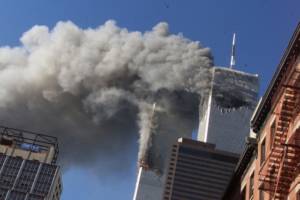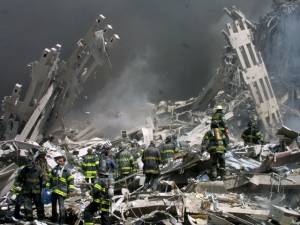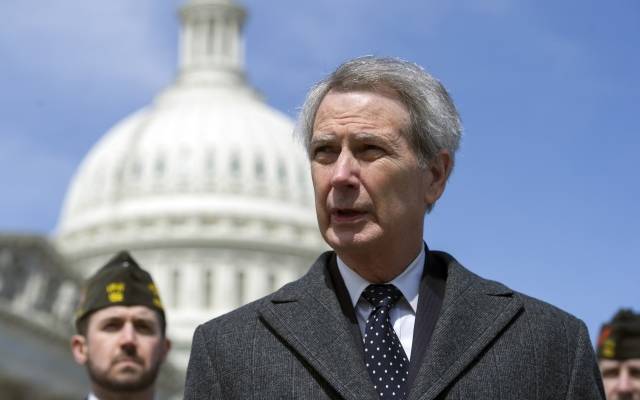
The Twin Towers during the 9/11 attacks. (AP/Richard Drew)
Neither the congressional inquiry nor the subsequent 9/11 Commission found any evidence that the Saudi government or senior Saudi officials knowingly supported the attacks that killed nearly 3,000 innocent people. But lawmakers and relatives of victims think there is reason to further probe possible Saudi links to the attacks.
Lawmakers backing the release of the 28 still-secret pages of a 2002 congressional report about the attacks of September 11, 2001, are asking House Intelligence Committee leaders to declassify them by simply publishing them in the Congressional Record.
President Barack Obama has promised to release at least part of the documents, which are believed to address Saudi connections to the hijackers.
James Clapper, national director of intelligence, was to review the classified pages — a review that was ordered in the summer of 2014. So far, they have remained secret, kept in a secure room in the basement of the Capitol.
“I have read these pages and can say that while their release will not harm national security, the contents are critical to our foreign policy moving forward,” Rep. Walter Jones (R-NC) said in a statement Wednesday. “That is why I have introduced a resolution that would enable the House Committee on Intelligence to declassify the 28 pages. … It is more critical than ever for the American people to know what led to the tragic attacks on Sept. 11, 2001, and I urge my colleagues on the House Intelligence Committee to release the pages.”
Reps. Stephen Lynch (D-Mass.) and Thomas Massie (R-Ky) co-sponsored the resolution, which calls for publishing them in the Congressional Record under the protection of the Constitution’s speech or debate clause. The purpose of the clause is to protect lawmakers from intimidation by the executive or judiciary branches and reinforce the separation of powers among the three branches of government.
California Rep. Adam Schiff, the ranking Democrat on the Intelligence Committee, said that while the Constitution’s speech or debate clause protects members of Congress, it does not protect sources and methods that may be compromised by inappropriately revealing classified information.

Firefighters at Ground Zero. (AP/Shawn Baldwin)
“I support release of the 28 pages, but only after appropriate redactions are made to safeguard intelligence sources and methods,” Schiff said. “It is also important to note that the 28 pages are also a Senate document, so it would be inappropriate for us to act unilaterally and without their concurrence.”
Asked for comment about the resolution, Jack Langer, communications director for the House Intelligence Committee, said: “There’s no need for this action now because, as the White House has said, the declassification review is underway.”
Neither the congressional inquiry nor the subsequent 9/11 Commission found any evidence that the Saudi government or senior Saudi officials knowingly supported those who orchestrated the attacks that killed nearly 3,000 people. But lawmakers and relatives of victims think there is reason to further probe possible Saudi links to the attacks.
Fifteen of the 19 Sept. 11 hijackers were citizens of Saudi Arabia. The Saudi government says it has been “wrongfully and morbidly accused of complicity” in the attacks, is fighting extremists and working to clamp down on their funding channels. Still, the Saudis have long said that they would welcome declassification of the 28 pages because it would “allow us to respond to any allegations in a clear and credible manner.”
The Saudis themselves have threatened to damage the US economy if the 28 pages are released.
By: AP and United with Israel Staff
